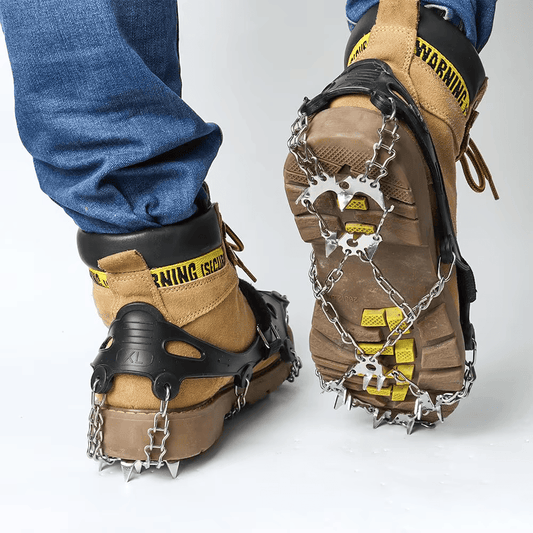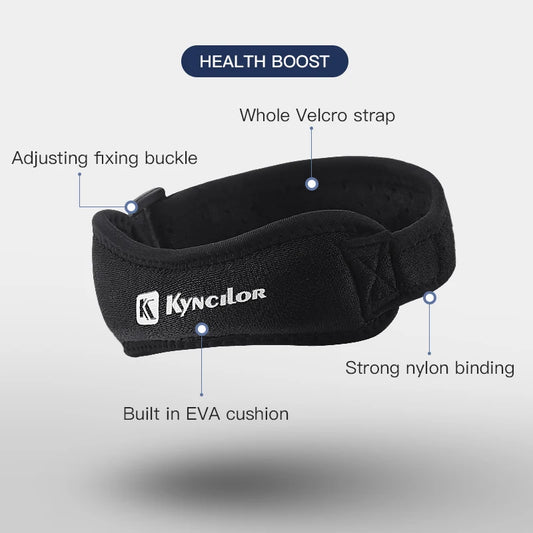
10 Mistakes to Avoid When Wild Camping for a Safe Adventure
Share to your friends
Wild camping, or camping outside designated campgrounds, can be a thrilling way to immerse yourself in nature and escape the hustle and bustle of everyday life. However, without the proper knowledge and preparation, it can also lead to a range of challenges and even dangerous situations. To ensure a safe and enjoyable hike, it's crucial to be aware of common mistakes that many wild campers make. In this blog, we’ll outline key pitfalls to avoid, helping you to discover dangers you weren't even aware of.
1. Neglecting Research on Local Regulations
One of the most significant mistakes wild campers make is failing to research the regulations of the area they plan to camp in. Many places have specific rules regarding wild camping, including permits required, designated areas, and fire restrictions.
- Do Your Homework (!) : Before heading out, take the time to research the local laws and guidelines. Some areas may prohibit camping altogether or require permits. Familiarizing yourself with the regulations will help you avoid fines and ensure that you’re camping responsibly.
- Respect Wildlife and Nature : you really have to understand local wildlife and ecosystems. Be aware of any specific wildlife concerns, such as bear activity, and follow guidelines for food storage and waste disposal to protect both yourself and the environment.
2. Overpacking or Underpacking Gear
Striking the right balance when it comes to packing gear is critical for a successful wild camping trip. Many campers either overpack, weighing themselves down with unnecessary items, or underpack, leaving essential gear behind.
- Pack Smart : Make a checklist of the most important gear based on the duration of your trip, the weather conditions, and the terrain you’ll be navigating. Include items like a lightweight tent, sleeping bag, cooking gear, food, water, navigation tools, and first aid supplies (some of these could save you in some situations).
- Choose Adaptable Equipment : Opt for multi-purpose items to save space and weight. For example, a pot can double as a bowl, and a headlamp can serve as a flashlight or lantern.
3. Ignoring Weather Conditions
Weather can change rapidly in the wilderness, and ignoring forecasted conditions can lead to uncomfortable or dangerous situations.
- Check the Forecast : Before your trip, check the weather forecast for the area you’ll be camping in. Pay attention to temperature fluctuations, potential storms, and wind conditions. You really don't wanna get stuck under a thunder or something worse !
- Be Prepared for Change : Even if the forecast looks good, be ready for sudden changes. Pack appropriate clothing layers, including waterproof and windproof options, and have a plan for seeking shelter in case of severe weather.
4. Choosing the Wrong Campsite
Selecting a suitable campsite is crucial for safety. We know many wild campers make the mistake of choosing a site without considering essential factors.
- Look for a Level Surface : Choose a flat, level area to set up your tent to ensure a comfortable sleeping surface. Avoid low-lying areas that can collect water in case of rain and steer clear of potential hazards like falling branches.
- Consider Proximity to Water Sources: While being near water is good, it’s important to set up camp at least 200 feet away from lakes and streams to minimize environmental impact and avoid flooding risks. Also, being too close to a river can lead to moisture issues for a camper's gear. When camping near a water source, the humidity in the air increases, which can cause tents, sleeping bags, and other equipment to become damp
- Evaluate Wind Exposure : Protect yourself from harsh winds by finding a campsite that is shielded by trees or natural features. Be cautious of camping in exposed areas, especially in high winds or storms.
5. Neglecting Fire Safety
We know how a campfire is a classic and we love them when camping ! However, improper fire management can lead to dangerous situations and forest fires. And if you don't want to kill our forests, we really need to be cautious with this.
- Follow Fire Regulations : Before lighting a fire, ensure it’s allowed in your area. Some locations have strict fire bans during dry seasons to prevent wildfires.
- Use Designated Fire Rings : If fires are permitted, always use established fire rings or fire pits to minimize environmental impact. Always keep your fire small and manageable.
- Extinguish Your Fire Properly : Always fully extinguish your fire before leaving your campsite or going to sleep. Pour water over the ashes and stir until cold to the touch, you have to be 100% sure no embers remain.

6. Forgetting Leave No Trace Principles
Practicing Leave No Trace principles is key for preserving the beauty of nature and ensuring that future generations can enjoy it as well.
- Pack Out What You Pack In : Always take your trash and leftover food with you. Dispose of waste properly to prevent littering and protect wildlife from scavenging human food.
- Minimize Camp Impact : Camp on durable surfaces like rock, gravel, or established trails to prevent soil erosion and protect vegetation. Avoid trampling fragile ecosystems by sticking to established paths.
7. Not Having a Navigation Plan
In the wilderness, it’s easy to lose your sense of direction, especially if you stray from well-marked trails. Many wild campers neglect proper navigation tools or skills.
- Bring a Map and Compass : Always carry a physical map and compass, even if you have a GPS device. Technology can fail, and having a backup is a must-have for navigation.
- Know How to Use Them: Familiarize yourself with reading maps and using a compass before your trip. Practice these skills in a safe environment to ensure you’re prepared for the wilderness.
8. Ignoring First Aid Preparedness
Accidents can happen everywhere and anywhere, so be prepared with first aid knowledge and supplies.
- Pack a First Aid Kit : You will need a well-stocked first aid kit that includes bandages, antiseptic wipes, pain relievers, blister treatment, and any personal medications. And you will need it at all times.
- Know Basic First Aid : Educate yourself on basic first aid practices, such as treating cuts, sprains, and bites. Knowing what to do in an emergency can make a significant difference.
9. Failing to Plan Meals
Food is an important aspect of camping, and neglecting to plan meals can lead to distress and wasted resources.
- Plan Ahead : Create a meal plan for your trip, considering how many days you’ll be camping and what meals you’ll prepare. Choose easy-to-cook and nutritious options that require minimal ingredients.
- Pre-Pack Meals : Consider preparing some meals at home and packaging them for convenience. Pre-measured ingredients can save time and effort while cooking in the outdoors.
10. Not Communicating Your Plans
Failing to inform someone about your camping plans can lead to serious consequences if something goes wrong. We unfortunately lose a lot of hikers because of situations this. And it will make your family less worry, too..
- Share Your Itinerary : Before you head out, share your trip details, including your planned route, campsite location, and expected return date, with a trusted friend or family member.
- Check-In When Possible : and why not, if your trip allows, check in with your contact at planned intervals to update them on your status.
Conclusion
Wild camping can be an unforgettable experience that allows you to connect with nature and enjoy the great outdoors. By avoiding these common mistakes, you can already go on a safer and more enjoyable hike. Take the time to plan, prepare, and respect the wilderness, and you’ll be rewarded with memories that last a lifetime !
Check out our collection of essential camping gear by clicking here, so you're fully prepared for your next outdoor journey !
Thanks for reading,
Joachim from Ezorya Team








